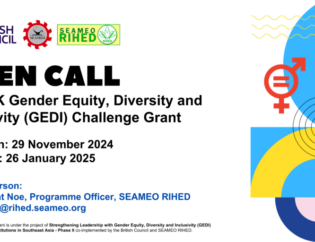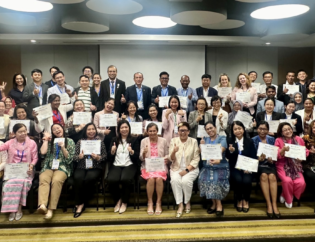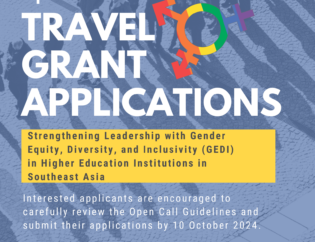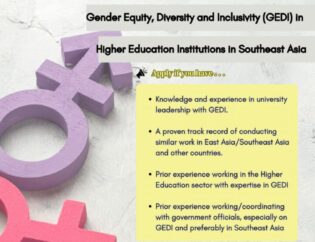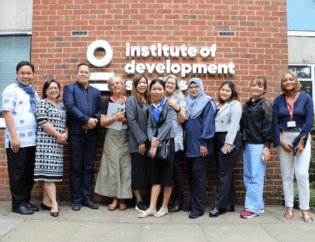Launching of the Strengthening Leadership with Gender Equity, Diversity and Inclusivity (GEDI) Project for Southeast Asian Higher Education Phase II
July 25, 2024
SEAMEO RIHED and the British Council are thrilled to announce the launch the Phase II of the transformative Gender Equity, Diversity, and Inclusivity (GEDI) Project, a landmark initiative aimed at fostering more inclusive and equitable higher education institutions across Southeast Asia. The project was inaugurated with a series of inspiring speeches and dynamic discussions featuring leading voices in the field.
Embracing Collective Wisdom for GEDI
In her opening remarks, Dr. Romyent Kosaikanont, Centre Director of SEAMEO RIHED, underscored the necessity of tailored approaches to GEDI challenges. "In addressing GEDI issues, there is no one-size-fits-all solution. Our focus will be on harnessing regional collective intelligence, learning from the best practices of each country, and adapting them to local contexts," Dr. Kosaikanont emphasized. "SEAMEO RIHED stands as a dedicated partner in addressing these unique needs."
Building on Success: A Vision for the Future
Reflecting on the success of Phase I, Mr. Leighton Ernsberger, Director for Education at the British Council in East Asia, noted the significant impact on participants’ awareness of inequalities and the identification of actionable steps forward. "Phase II aims to deepen our understanding of GEDI in Southeast Asian Higher Education Institutions by leveraging shared experiences and best practices," said Mr. Ernsberger. "Our goal is to foster a more inclusive and equitable educational environment across the region."
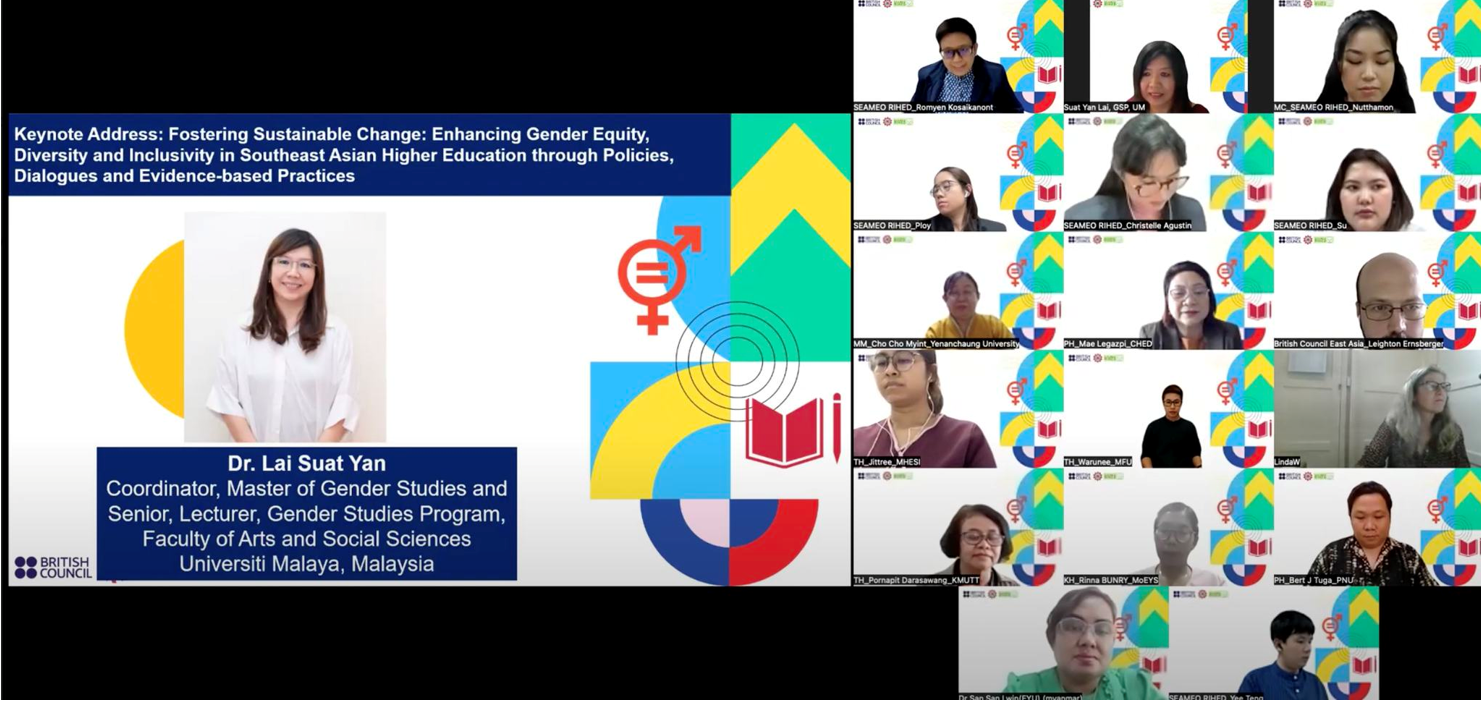
A highlight of the event was the keynote address by Dr. Lai Suat Yan, Coordinator of the Master of Gender Studies Programme at Universiti Malaya. Dr. Yan passionately advocated for greater inclusivity in data collection, particularly for differently-abled individuals. "Differently-abled individuals are often excluded from surveys and data collection, which may result in underrepresentation. We need to ask the right questions to truly understand and support all members of our academic communities," Dr. Yan remarked.
Driving Change: Collaborative Efforts and Policy Recommendations
The panel discussion illuminated the collaborative efforts needed to enhance GEDI in higher education. Key recommendations included:
- Strengthening relationships between policymakers and universities to ensure that policies address societal demands effectively.
- Engaging universities in national policymaking to incorporate ground-level perspectives.
- Providing incentives for GEDI initiatives, such as recognition awards and research grants.
- Sharing expertise and technology for the development and implementation of GEDI policies.
- Addressing the shortage of inclusivity and accessibility experts in the region.
Charting the Future: A Teaser of Activities
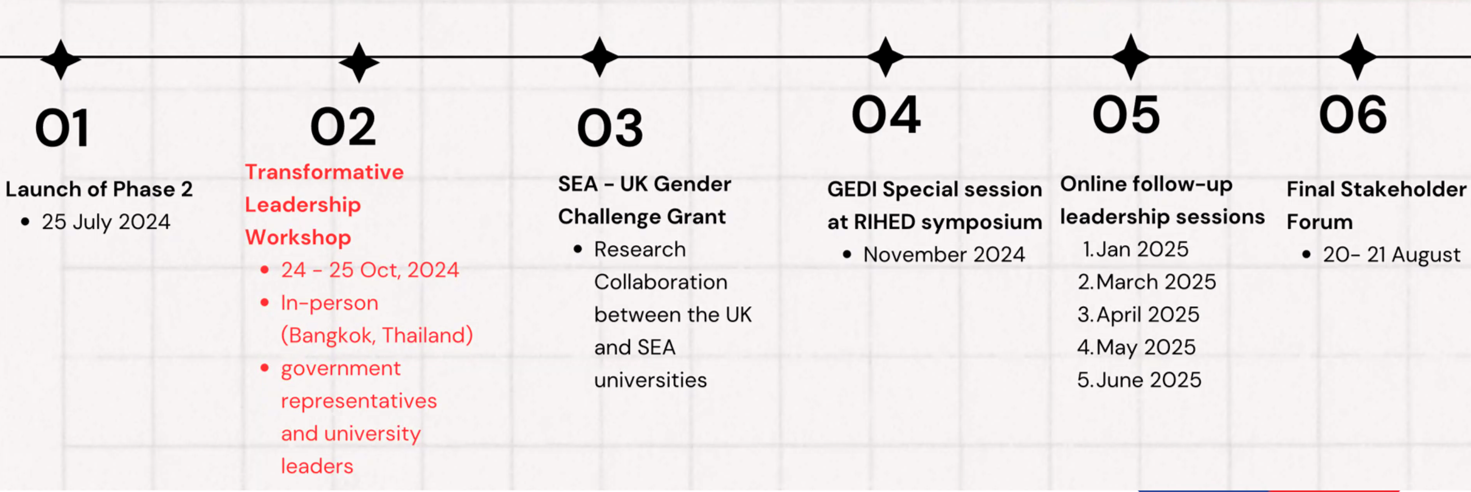
The GEDI Project's future activities promise to be engaging and impactful. Highlights include:
- A transformative leadership workshop in Bangkok on 24-25 October 2024 with government and university representatives
- SEA-UK Gender Challenge Grant which encourages GEDI related research collaboration between universities from Southeast Asia and the UK.
-Special GEDI tracking session in the 2024 Inter-regional Research Symposium
- Online follow up leadership sessions and a final Stakeholder Forum from 20-21 August 2024.
Leveraging Online Networks for Greater Impact
SEAMEO RIHED highlighted the transformative potential of online communities in fostering a robust sense of inclusivity and shared purpose. "Research shows that online communities offer a robust sense of community, regardless of physical proximity. These groups can transcend traditional social boundaries, uniting people by shared traits or interests. This potential is something we must harness for our GEDI initiatives," Agustin emphasised.
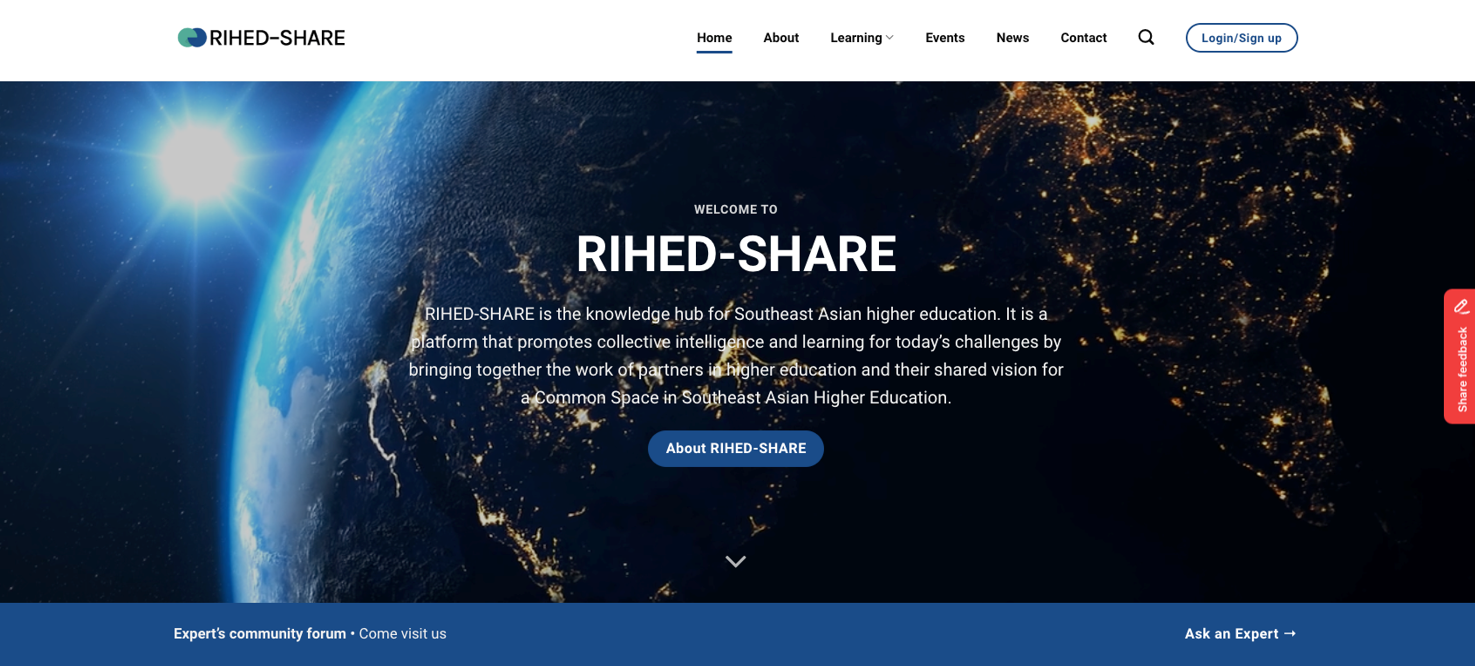
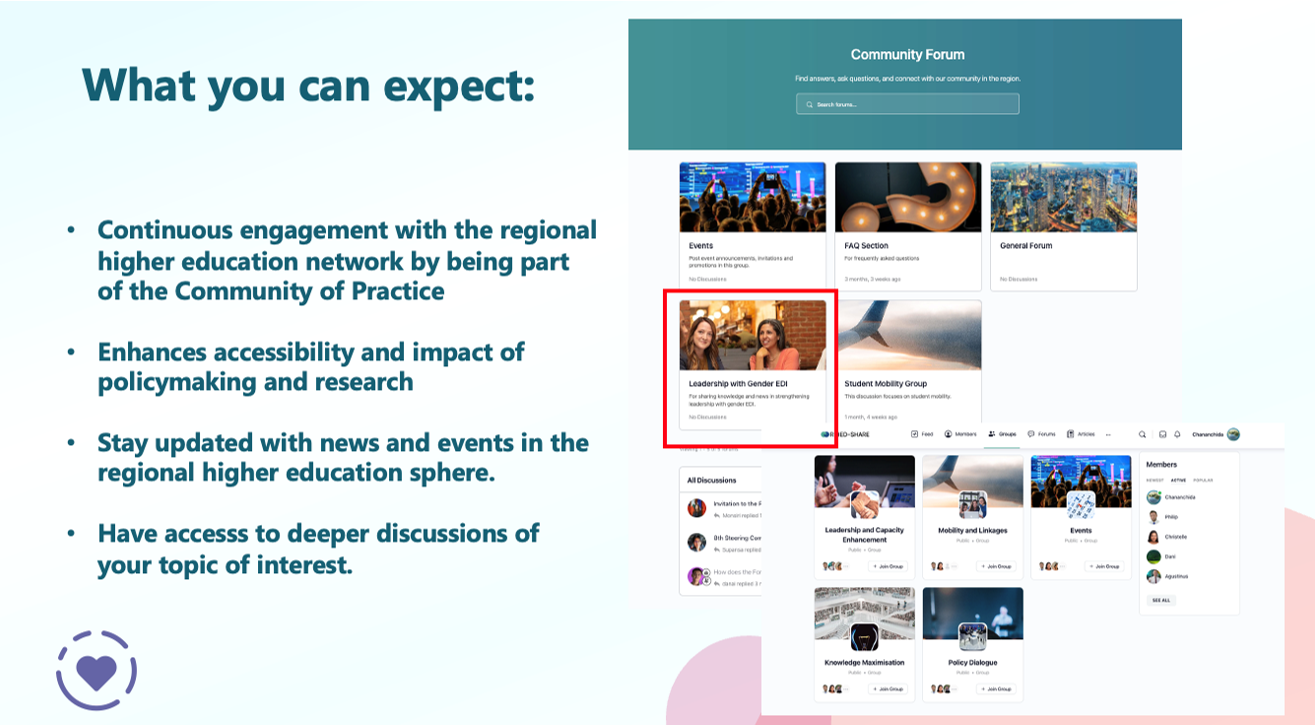
RIHED-SHARE serves as a platform for regional collective intelligence, aiming to build a sustainable future through continuous engagement with peers and experts, access to in-depth discussions, and sharing of competencies in GEDI. "By contributing to this common space, you help build a more inclusive and diverse higher education environment in Southeast Asia," Agustin stated.
The session underscored the importance of collaboration and the power of online networks in driving the conversation forward. Participants were encouraged to actively engage with the platform, connect with fellow professionals, and share resources to amplify their impact on GEDI initiatives.
SEAMEO RIHED’s GEDI Project is poised to make a significant impact on the higher education’s inclusive leadership in Southeast Asia. By fostering collaboration and leveraging collective intelligence, the initiative aims to create a more inclusive, diverse, and equitable educational environment.
